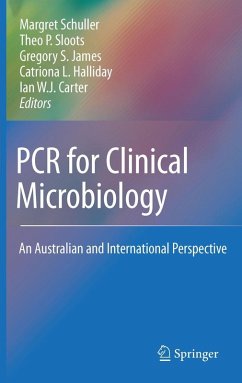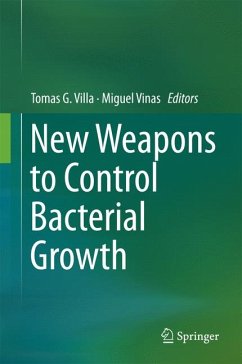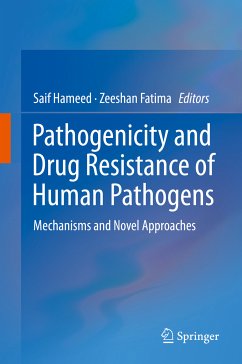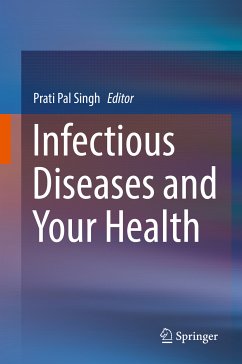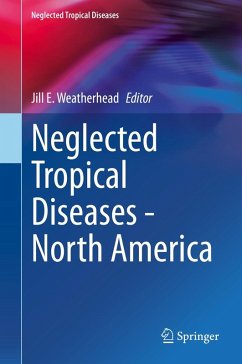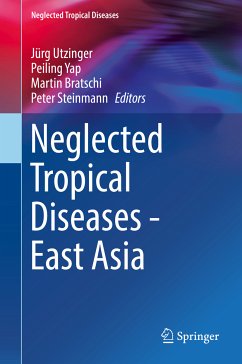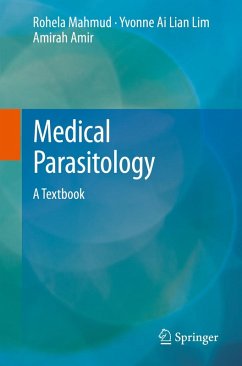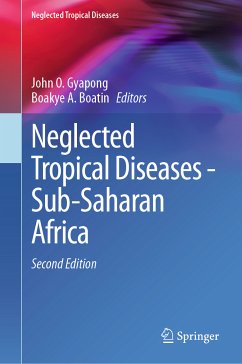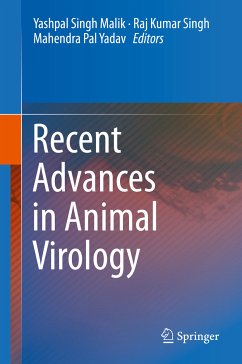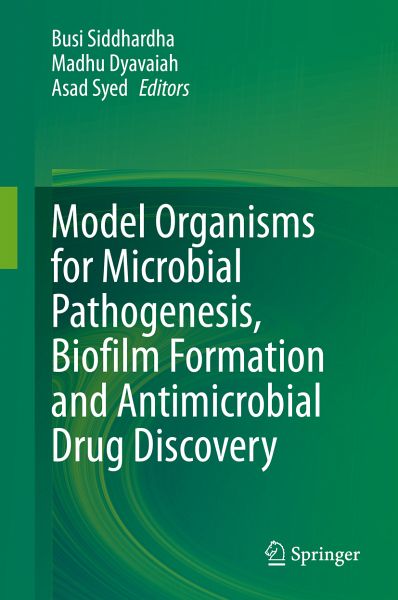
Model Organisms for Microbial Pathogenesis, Biofilm Formation and Antimicrobial Drug Discovery (eBook, PDF)
Versandkostenfrei!
Sofort per Download lieferbar
160,95 €
inkl. MwSt.
Weitere Ausgaben:

PAYBACK Punkte
80 °P sammeln!
This book provides essential insights into microbial pathogenesis, host-pathogen interactions, and the anti-microbial drug resistance of various human pathogens on the basis of various model organisms.The initial sections of the book introduce readers to the mechanisms of microbial pathogenesis, host-pathogen interactions, anti-microbial drug resistance, and the dynamics of biofilm formation. Due to the emergence of various microbial resistant strains, it is especially important to understand the prognosis for microbial infections, disease progression profiles, and mechanisms of resistance to ...
This book provides essential insights into microbial pathogenesis, host-pathogen interactions, and the anti-microbial drug resistance of various human pathogens on the basis of various model organisms.
The initial sections of the book introduce readers to the mechanisms of microbial pathogenesis, host-pathogen interactions, anti-microbial drug resistance, and the dynamics of biofilm formation. Due to the emergence of various microbial resistant strains, it is especially important to understand the prognosis for microbial infections, disease progression profiles, and mechanisms of resistance to antibiotic therapy in order to develop novel therapeutic strategies.
In turn, the second part of the book presents a comparative analysis of various animal models to help readers understand microbial pathogenesis, host-pathogen interactions, anti-microbial drug discovery, anti-biofilm therapeutics, and treatment regimes. Given its scope, the book represents a valuable asset formicrobiologists, biotechnologists, medical professionals, drug development researchers, and pharmacologists alike.
The initial sections of the book introduce readers to the mechanisms of microbial pathogenesis, host-pathogen interactions, anti-microbial drug resistance, and the dynamics of biofilm formation. Due to the emergence of various microbial resistant strains, it is especially important to understand the prognosis for microbial infections, disease progression profiles, and mechanisms of resistance to antibiotic therapy in order to develop novel therapeutic strategies.
In turn, the second part of the book presents a comparative analysis of various animal models to help readers understand microbial pathogenesis, host-pathogen interactions, anti-microbial drug discovery, anti-biofilm therapeutics, and treatment regimes. Given its scope, the book represents a valuable asset formicrobiologists, biotechnologists, medical professionals, drug development researchers, and pharmacologists alike.
Dieser Download kann aus rechtlichen Gründen nur mit Rechnungsadresse in A, B, BG, CY, CZ, D, DK, EW, E, FIN, F, GR, HR, H, IRL, I, LT, L, LR, M, NL, PL, P, R, S, SLO, SK ausgeliefert werden.



